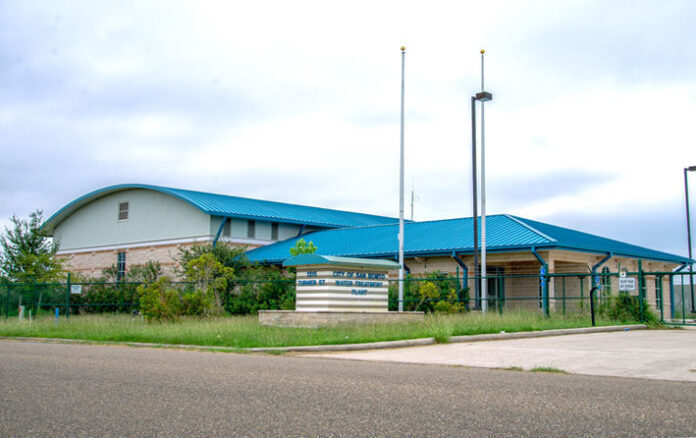SAN BENITO — An engineering firm will help the city bring its $17 million water plant back into operation.
Last night, city commissioners selected Garver, a Little Rock, Ark., company, to oversee part of the project aimed at restoring the plant shut down in 2014.
Commissioners picked Garver over HDR, an engineering firm based in Omaha, Neb.
The two civil engineering firms, which specialize in membrane technology, were the only companies to present proposals for the job, City Manager Manuel De La Rosa told commissioners.
De La Rosa described the firms as “very well qualified.”
Garver, founded nearly 100 years ago, runs a Harlingen office, he said.
“They’ll be closer and be more hands on,” Commissioner Carol Lynn Sanchez said.
Officials expressed concern over HDR’s travel costs.
“Our expenses could go through the roof when it comes to their travel,” Sanchez said.
As part of the project to restore the water plant, the city will fund construction of a holding pond designed to receive untreated resaca water, which would be used by the plant’s filtration system.
The city has no final cost estimate on that project, spokeswoman Martha McClain stated earlier this week.
“This firm will help us specifically with the design of that holding pond,” De La Rosa said.
In 2014, the city’s previous commission shut down the water plant amid concerns its microfiltration system wasn’t properly operating while the plant never produced its capacity of six million gallons a day, McClain stated.
Meanwhile, the city filed a lawsuit against companies involved in its design and construction, arguing the plant never properly operated.
In December 2017, the city received $1.87 million in cash and $3.1 million worth of services from Evoqua Water Technologies to help the city restore operations.
As part of the settlement, Evoqua agreed to perform $3.1 million in services, including conducting a pilot study, providing test data and installing and commissioning equipment.
The company has agreed to supply “state-of-the-art upgraded membranes designed to provide the best ultra-filtration available and enable the plant to ultimately produce and deliver 10 (million gallons per day) in the future,” according to a press release.
Under the agreement, Evoqua will train employees to operate the water plant, staff a technician or engineer for 12 weeks and organize weekly meetings while visiting the plant to monitor its operation for two years.
The settlement agreement requires Evoqua to install and commission the plant no later than nine months after the state’s approval. Installation and commissioning are deemed achieved once Evoqua physically completes installation of the equipment for initial operation that will produce 6 million gallons per day, according to terms of the agreement.
Now, she said, Evoqua is conducting a pilot study that must be approved by the Texas Commission on Environmental Quality.
As part of the study, the company is assessing the plant’s operational components and performing maintenance, McClain stated.
As the city filed the lawsuit, commissioners launched a $3 million project to renovate the city’s 90-year-old water plant, aiming to turn it into the main water source.
The amount of money the city has pumped into the old plant is unclear.
However, the city’s use of the plant as its primary water source led to problems.
In September 2016 and last January, the old plant temporarily shut down, cutting water service across town.
As part of an agreement, Harlingen provided the city with water used to temporarily serve the city’s homes and businesses.




